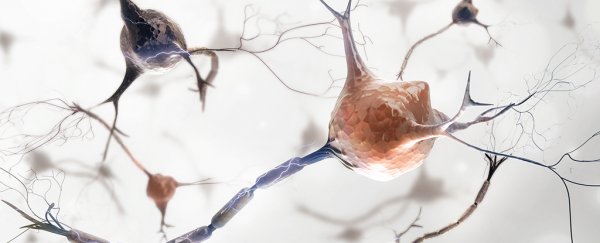Remember a month ago, we wrote a story that said your hippocampus probably wasn't delivering any new brain cells? Well, now here's a study that says yes, it is in fact probably still growing new neurons for you.
Before you flip that table screaming 'make up your mind!', we're here to remind you that this kind of debate is what makes science so incredibly powerful. What looks like confusion actually tells us something important about the way science works.
To briefly recap decades of neurology, the general consensus used to be that the human brain stopped growing neurons sometime after birth, meaning by adolescence we really ought to be preserving those precious few cells we have left up there.
Some studies conducted on other animals have since suggested we shouldn't be too hasty, pointing out that a number of mammals keep growing new brain cells.
More recently a study published in Nature and led by researchers from the University of California, San Francisco, literally dug deeper into this meaty topic by studying autopsied samples of hippocampus tissue taken from people of different ages.
Their conclusion was that we can forget those animal studies – beyond adolescence, we humans don't grow any new brain cells in our hippocampus.
Since this is the favoured spot for ongoing generation of new neurons, it's unlikely that any of our grey matter is still growing.
Final word on the matter, then? Not so fast.
Now a study led by neurobiologists from Columbia University has followed a similar method to conclude we do indeed grow new cells in our hippocampus, all the way into our twilight years.
The team also used hippocampi taken via autopsy from 28 individuals aged between 14 and 79, all of whom were given a clean bill of health before their sudden death.
Not only did the scientists look for signs of new neural growth, they also examined the state of the blood vessels in this part of the brain.
What they found was that so long as that area of the nervous system is in fairly good shape, the hippocampus stays roughly the same size and new cells continue to grow throughout our lives.
"We found that older people have similar ability to make thousands of hippocampal new neurons from progenitor cells as younger people do," says lead author and neurobiologist Maura Boldrini.
"Nevertheless, older individuals had less vascularization and maybe less ability of new neurons to make connections."
This reduced capacity to make connections is mostly speculation, but could help explain cognitive decline in later years.
While this research ultimately agrees with previous ideas that there's a physiological process causing cognitive decline with age, it's far from a backflip taking us back to the old argument.
For one thing, these results offer more details on what might explain such radical differences between all these neuron generation studies, as this time the team took the health of older brains into account by looking at the blood vessels.
Not only does it mean we're closer to a solid answer, it fills in some of the blanks that otherwise create confusion.
The diverse pool of studies also tells us just how much confidence we should have in any one conclusion. (Spoiler: not a lot.)
But beyond that, scientists are continuing to gather vital data, building a picture that gets clearer with each single study.
Human brains are notoriously complex organs, so whatever the truth is, the eventual model will have to take into account a mountain of subtle observations, finally explaining a history of conflicting research.
That's exciting. And it's science at its best.
This research was published in Cell Stem Cell.
